Note: Genesis P-Orridge’s preferred pronouns are a customized hybridization of ‘he’ and ‘she.’ Henceforth P-Orridge will be referred to as custom written s/he & h/er pronouns exclusively.
David Charles Rodrigues directs a look into the wild and storied life of Genesis P-Orridge, founding member of the bands Throbbing Gristle and Psychic TV as well as occult and art groups Thee Temple ov Psychick Youth and COUM Transmissions. Just an expansive look into the above groups and h/er involvement in them would fill a 90-plus minute documentary on its own. But Rodrigues wants to look more into the life of the person who happened to be there at the time.
The documentary begins rather abruptly with a question posed to P-Orridge about h/er faith in magic. S/he declines to go into h/er answer because it would be too involved for h/er current state so the inquiry is left dangling and whirring, unattended to and eventually abandoned. P-Orridge talks through h/er life as s/he sits in a gallery, an artist painting a likeness of h/er naked torso adorned with numerous tattoos, scars, and jewelry that represents the life events of Genesis while s/he illustrates the stories behind them.
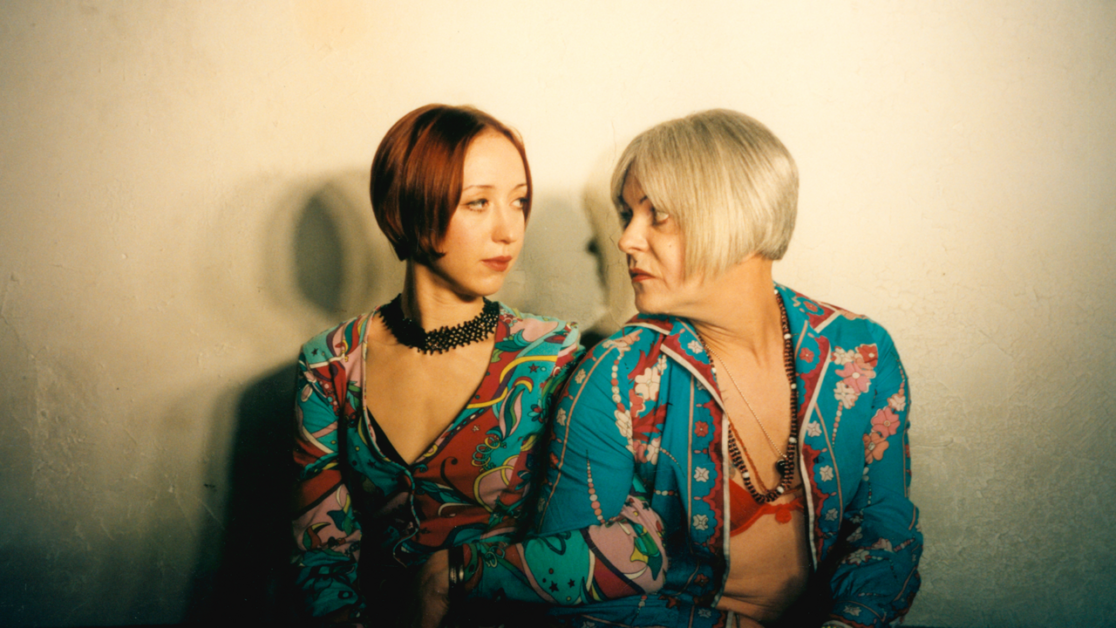
At this point, s/he is near death’s door but still willing to relive the experiences of h/er life from past to present. Much time is spent talking about P-Orridge’s involvement in the art & music world but gets slightly cagey about h/er relationship with artists Cosey Fanni Tutti and Paula P-Orridge. S/he never hides the fact that things were difficult but Rodrigues pulls back on this as well, favoring to show us more of P-Orridge’s accomplishments in art. And this is reflective of how Genesis lived h/er life: focused much more intensely on h/er artistic endeavors until family became that endeavor.
While Rodrigues’s omission of P-Orridge’s more checkered past can be marked as a deliberate choice, the inclusion of the start of the idea that s/he was fascinated with totalitarian and fascistic branding and iconography suggests the introduction of another idea that would develop into an investigation surrounding the usage of specific symbols and personal stylings in P-Orridge’s branding for Psychic TV. We’re shown the very start of an interview s/he appeared on with Perry Haines in 1982, but it cuts away to a point after footage from the group is shared on national television. Once P-Orridge stipulates that it would be fruitless to deliver h/er group’s philosophies in a limited time slot designed for quick public consumption.
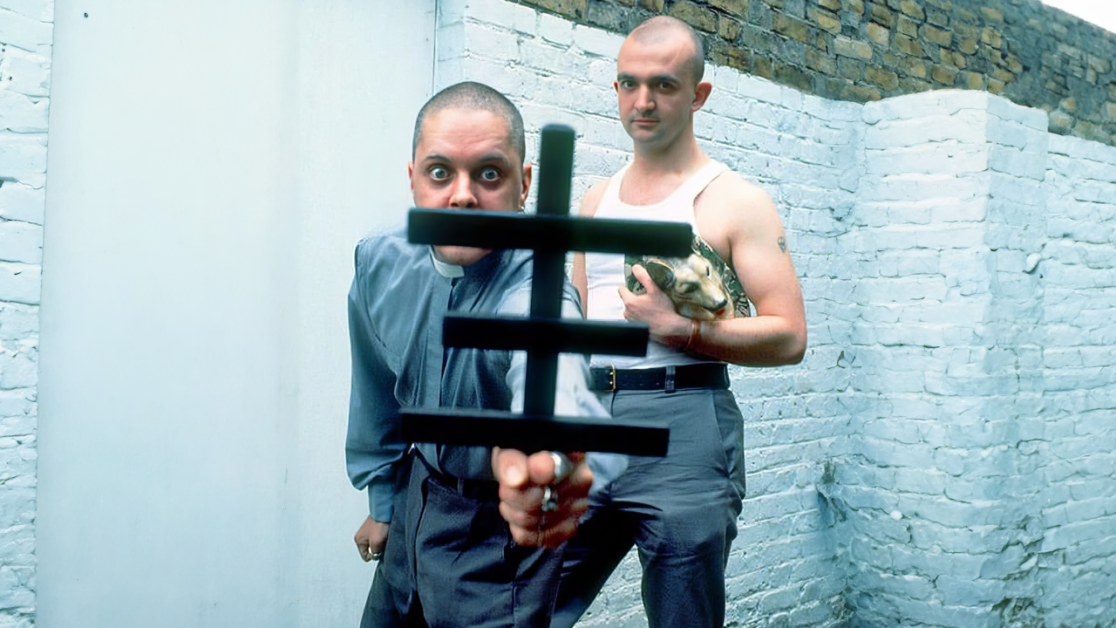
The interview that follows this footage is far more informational and sheds much more light on what P-Orridge and Peter Christopherson claim to be trying to do through Psychic TV and the use of their seemingly forward shaved-head look and the stark, vaguely authoritarian appearance of Psychic TV’s logo. As P-Orridge puts it, “We like to use contradictions, and to have a very uniform and non-uniform idea combined appeals to us on a mischievous level … we’re in a society of the superficial and [of] style. So we’re playing a game with style in a sense, to negate it.” It seems somewhat irresponsible of Rodrigues to want to show this part of P-Orridge’s philosophy without clearly following through to show the governing principles that utilize clashing symbols of philosophies that run the world, effectively refusing to truly investigate them.
There might be a degree of contextual cordoning off of specific areas pertaining to P-Orridge’s life, but such boundaries are never made clear. But in examining P-Orridge’s home life, decades removed from projects like Throbbing Gristle or Psychic TV, one of h/er daughters freely talks about Genesis’s collection of fascist memorabilia. This raises some specific concerns in this reviewer (and should in others) when a documentary focuses on the life of an artist and fails to take note of a clear transparent moment of what matters to someone in their life enough to make them want to amass imagery of this nature rather than being content with having played with facsimiles of the real thing for “art’s sake” in the past.
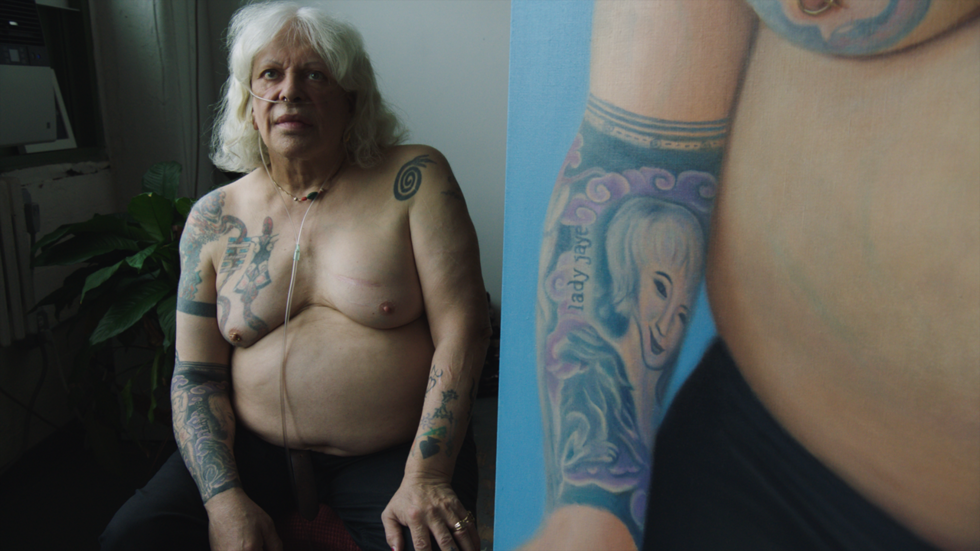
On the other side of this examination of Genesis P-Orridge’s life, there exists a profound veneration, bordering on hagiography, that becomes well-documented and noted right away. This comes through the subjects talking about h/er whether or not s/he is in the room with them, and it’s clear that Rodrigues is of the same mindset as his subjects. But the care taken in this reverence ultimately obfuscates any attempts for the curious to really thoroughly explore P-Orridge’s work no matter what bias the filmmaker could be coming from. And as much as P-Orridge has lived a wildly varied life, or lives as it could be argued, the quoted section of h/er interview that touches on contradictions and the negation of style by way of sardonic participation within those spaces applies more deeply to Genesis as a person following a pattern than what Rodrigues picks up on.
Despite the efforts made to chronicle h/er life and how each monumental event in it happened, the film falls short of helping us understand who Genesis P-Orridge really is. Or even try to understand. The true, full answer is never really quantifiable or even feasible as something that can be condensed into a statement for any human on this planet. But Rodrigues doesn’t feel driven to explore beyond his subjects’ anecdotes. It’s akin to the documentary’s opening sequence of P-Orridge arriving at a studio to get h/er portrait made but only a disembodied torso is captured in meticulous detail. It’s like P-Orridge says in the clip that Rodrigues did manage to include from h/er TV interview with Haines: “The whole problem with the kind of television that we’re on now, is that it tries to give you the answer to the universe in like one minute. And anything which is giving real answers must use longer periods of time.” Perhaps we just don’t have enough time in the world to unpack the principles of h/er true philosophies, and at this point, we may never get a real and honest look at them.
S/He Is Still Her/e – The Official Genesis P-Orridge Documentary held its World Premiere as a part of the Spotlight Documentary section of the 2024 Tribeca Festival.
Director: David Charles Rodrigues
Rated: NR
Runtime: 99m
Despite the efforts made to chronicle h/er life and how each monumental event in it happened, the film falls short of helping us understand who Genesis P-Orridge really is. Or even try to understand.
-
GVN Rating 4.5
-
User Ratings (0 Votes)
0

Anya is an avid film watcher, blogger and podcaster. You can read her words on film at letterboxd and medium, and hear their voice on movies, monsters, and other weird things on Humanoids From the Deep Dive every other Monday. In their “off” time they volunteer as a film projectionist, reads fiction & nonfiction, comics, and plays video games until it’s way too late.


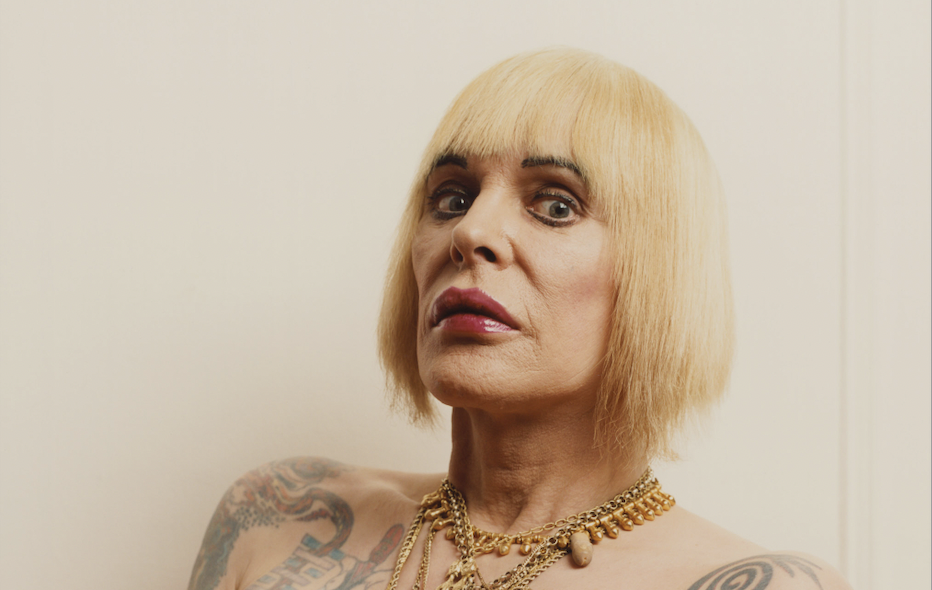
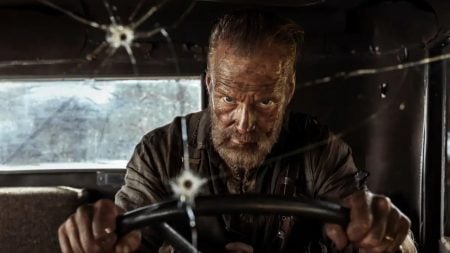
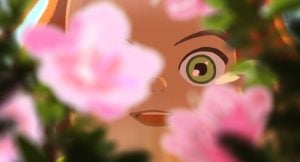
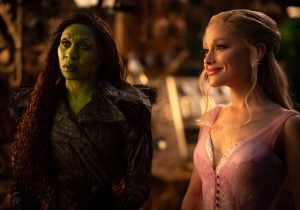
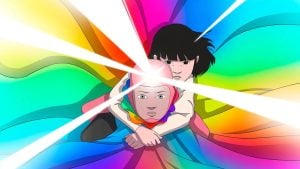
1 Comment
fascination with totalitarism? collection of fascist memorabilia? thank god TG and TOPY were before the internet age of disinformation